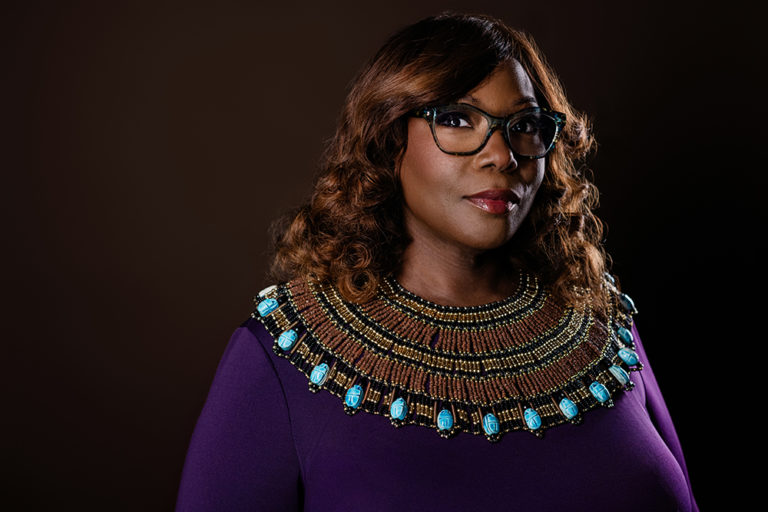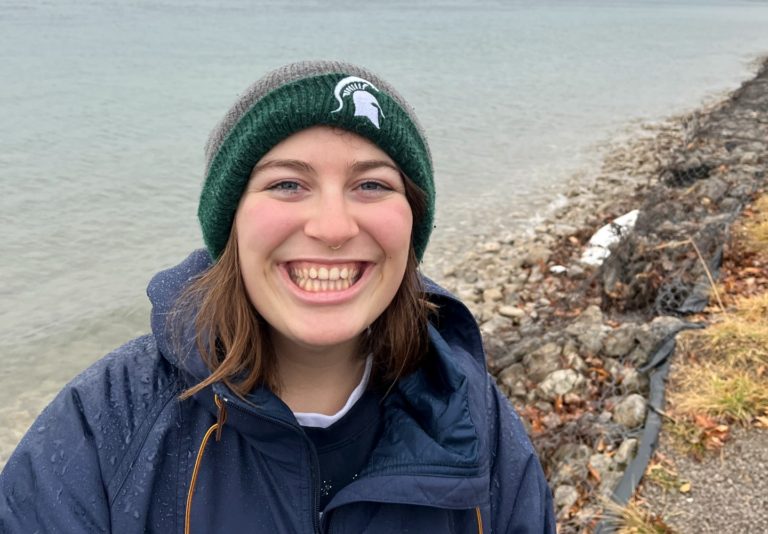Olivia Gundrum, a senior Honors College English major and first-generation college student, graduates this May and will leave MSU having made a positive impact through her work to cultivate a racially informed curriculum within the College of Education.
As an English major focusing on English Secondary Education, the interconnectedness of racial identity in the English classroom has always intrigued Gundrum. However, the Critical Race English Education courses taught by Department of English Associate Professor Lamar Johnson proved to be her catalyst for action.
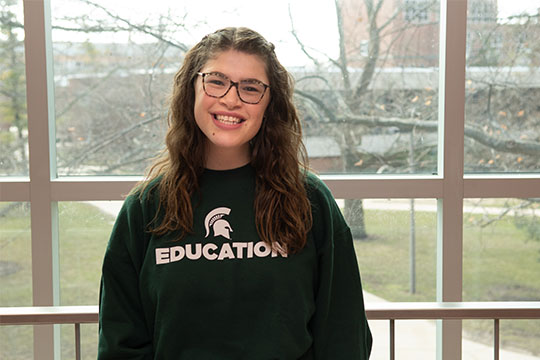
“In my classes with Dr. Johnson, we talk about critical race studies, reflecting on our whiteness, and race in the classroom,” said Gundrum, who took Johnson’s Intro to the English Language class with her friend Julia Alvarez, another student in the College of Education.
“After class, we talked about how we felt the College of Education was not preparing us to teach students of color,” Gundrum said. “I felt that as a white educator I was not given enough opportunities or courses to learn about racial identity and supporting students of color.”
It was really empowering for me to realize how important the student voice is in academia. We are the ones academia serves, and we are the ones who are investing in our education.
Gundrum and Alvarez reached out to Corey Drake, Associate Professor in the College of Education and Director of the Teacher Preparation Program. At the time, the College of Education was looking to improve upon its Teacher Preparation Program.
Gundrum and Alvarez gave a presentation to 50 faculty members in the College of Education at the Teacher Preparation Program Redesign Retreat in January 2019. The presentation, “Addressing Whiteness in the College of Education,” focused on the College’s opportunity to pioneer conversations about race and equity in the classroom.
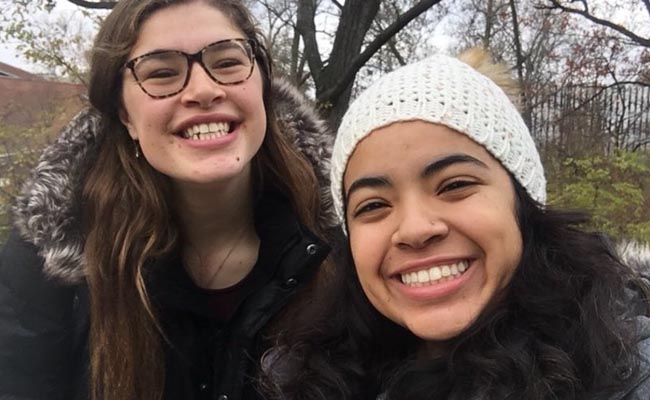
By using their personal experiences in the College, Gundrum and Alvarez were able to give unique insight into the issues they noticed within the curriculum and provided short-term and long-term solutions. After the presentation, faculty members broke into groups to discuss how best to reflect racial equity in the College’s curriculum.
The College of Education later changed the program requirements to reflect the importance of racial equity in the classroom. There are now four different required seminars in the College that cover topics of race, gender, and sexuality, and how these intersections of identity affect student experiences in the classroom.
“It was really empowering for me to realize how important the student voice is in academia,” Gundrum said. “We are the ones academia serves, and we are the ones who are investing in our education. So, if we are not getting what we think we should be getting from our program, that is a problem for the program.”
Working Toward Social Justice
During her time at MSU, Gundrum also was part of the MRULE-ICA program, which aims to build community across differences, connect students to serve in the local community, and engage with global perspectives.
“Through my job with MRULE, I got to form relationships with other students and have important conversations about social justice issues every week,” Gundrum said. “I also gained experience facilitating and planning those conversations about important issues. That really allowed me to grow as a person.”
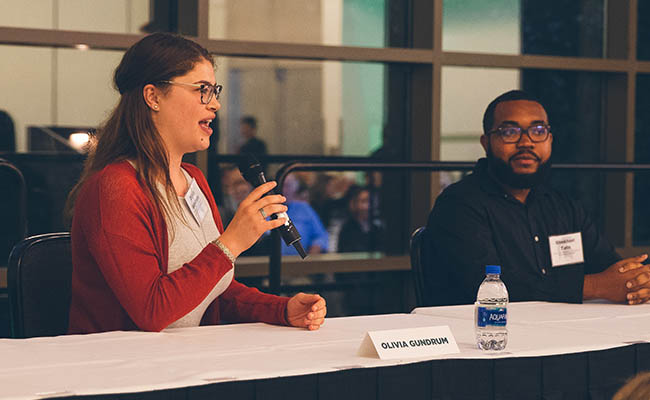
Additionally, Gundrum serves as a peer educator for MSU’s Prevention, Outreach, and Education Department, where she helps conduct first- and second-year workshops on relationship violence, sexual misconduct, and bystander intervention.
Gundrum’s involvement in areas concerning social justice has informed the type of teacher she hopes to be in the future.
I want to be a teacher who really uplifts student voices and is intentional in my curriculum, my practices, and in the relationships that I build with students…I’m trying to be the type of teacher where, when students come to my class, they feel like they’re doing work that matters.
“I want to be a teacher who really uplifts student voices and is intentional in my curriculum, my practices, and in the relationships that I build with students,” she said. “I want to work on lessening that hierarchy between a teacher and student and create a learning space where all of us can be genuine with each other and talk about what is impacting our lives. I’m trying to be the type of teacher where, when students come to my class, they feel like they’re doing work that matters.”
Future Plans to Teach English
Gundrum looks forward to teaching English as it will allow her to engage with students through literature and create applicable and meaningful writing assignments.
“Literature can be a reflection, when it’s chosen well, of our lives. For example, if we read books like All American Boys or The Hate you Give or Just Mercy, we can begin to have a conversation about the criminal justice system and how that impacts all of us,” Gundrum said. “In doing that, not only are we diving into literature and having important conversations, we’re also seeing the way that art impacts our lives and is a reflection of our lives.”

Gundrum is drawn to teaching high school students because of the crucial developmental stages present in these age groups. Given her background as a first-generation college student, she also wants to help high school students make plans for their post-graduate lives.
If you show students that you are committed to them and their success, they will want to succeed. I believe that all students want to succeed and can enjoy learning, they just want to learn about things that matter and are relevant to their lives.
“I have noticed that the traditional school system is designed for a very specific kind of student, and I am becoming a teacher because I want to work with students who do not fall into that category,” Gundrum said. “I care about the holistic achievement and growth of all students. If you show students that you are committed to them and their success, they will want to succeed. I believe that all students want to succeed and can enjoy learning, they just want to learn about things that matter and are relevant to their lives.”
Written by Annie Dubois
